Album review: ‘Stomp-clap-hey’ all over again on Rushmere, Mumford and Sons’ return
There are times on the British folk-pop trio’s fifth album where you find yourself wondering whether they’ve simply copy-and-pasted some of the old banjo arpeggios recorded in their heyday.

Album reviews for week of April 5 2025:
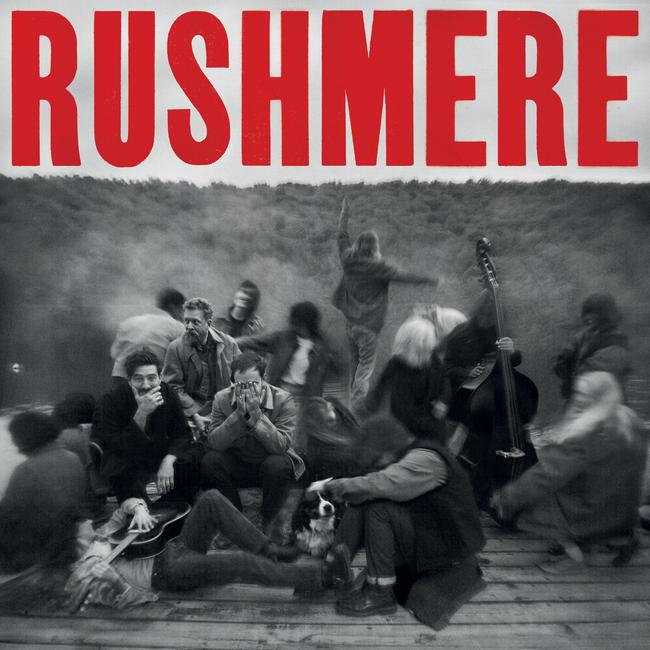
FOLK/POP
Rushmere
Mumford & Sons
Island Records
If you’ve crested the wave of 30, understand the phrase ”orthopaedic shoe”, and often feel a twinge in your lower back, there’s a good chance you’ll be intimately familiar with the ascendancy of Mumford & Sons. At the start of the 2010s, the four (now three) musicians – Marcus Mumford, Ted Dwane, Winston Marshall and Ben Lovett – from London ushered in an era fondly known as the ”stomp-clap-hey!” phase of modern pop. Armed with upright basses and banjoes played at the speed of light, they quickly hit upon a winning formula engineering stadium-sized Americana-pop hits like early single Little Lion Man, which topped Triple J’s Hottest 100 poll in 2009. Second album Babel (2012) featured much of the same, with the frenetic track I Will Wait becoming the quartet’s highest-selling single to date. Criticisms of posh London boys cosplaying as farmers didn’t seem to take the gloss off, and the band continued on its merry way by headlining festivals and scooping up Grammy Awards (Babel took home the big one: album of the year). The band changed direction a little following Babel, introducing electric instruments and a rock edge in 2015’s Wilder Mind, and more synthetic flourishes on 2018’s Delta. After Delta, the four became three, with guitarist Marshall exiting after he sparked a major online backlash for praising right-wing figure Andy Ngo. The band fell quiet for a time as Mumford released a solo record, which received lukewarm reviews, and late in 2022 he flagged a new studio album was coming from the band. Rushmere is Mumford & Sons’ first album in seven years, and its fifth overall.
Whatever experimentation they explored on Delta and Wilder Mind has been ditched by the trio in favour of a return to their formative years – perhaps appropriately, as the album title refers to the London pond where the friends hung out before becoming a band. There are lashings of Neil Young, Tom Petty and Jackson Browne across tracks like Truth, Caroline and Where It Belongs. Others, like the title track and Surrender, could just be plucked straight from Sigh No More or Babel. Indeed, there are times when the tracks recall older ones so strongly you find yourself wondering whether they’ve simply copy and pasted some of the old banjo arpeggios recorded more than a decade ago. Lyrically, Mumford is again painting with the same brush, walking through valleys and waiting for lovers and trying to find lights in the darkness; platitudes dished up without much emotion attached to them at all. These are nice enough tracks to toe-tap along to, and there are some genuinely lovely moments to be found in the quieter moments, like on Where It Belongs, but you can’t help but feel you’ve heard it all before – because you have. For those longing for 2012-era Mumford & Sons, Rushmere will bring you comfort. If you’re not, it probably won’t stay with you.
Jules LeFevre
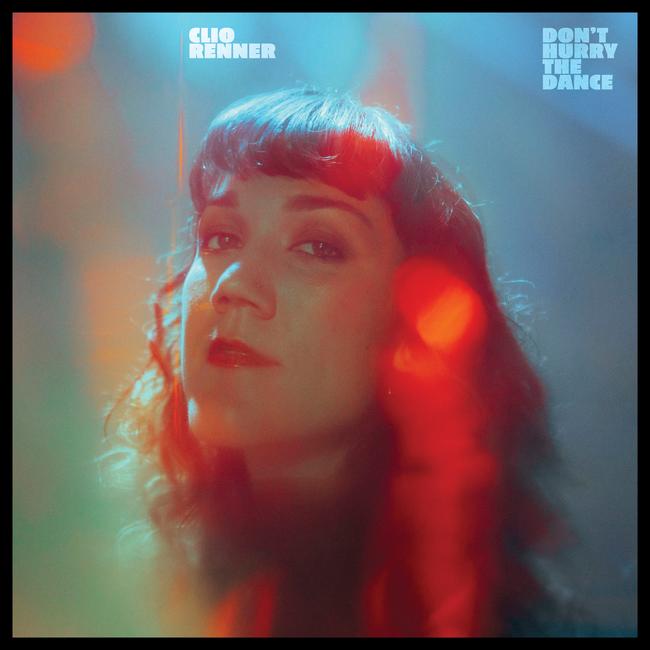
INDIE POP
Don’t Hurry the Dance
Clio Renner
Independent
Melbourne’s Clio Renner is an in-demand keyboardist and singer for the likes of Paul Kelly, Tim Rogers, G Flip and Angus and Julia Stone, as well as playing keys in the RocKwiz house band. You can hear her well-earned confidence across her second solo album, which features its own all-star cast of supporting players. These songs show real dramatic flair, with musical leaps and flourishes driving home Renner’s nimble, dynamic singing. Strings and harmonies adorn Too Soon, while Same Page opens with dual vocals and All Clear urgently repeats its title refrain. Renner switches between multiple keyboard instruments, starting Running Circles with spacey waves of synth and Show Me the Deal with stark piano. The album’s dreamy production supports her vocal flights and swerves, yet Renner knows all too well when to pull things back and when not to. Case in point: Why Is It Hard to Be a Good Friend? is downright minimalistic until an abrupt wash of distortion and backing vocals takes it to an exciting new level.
Doug Wallen

INDIE POP
I Love What We Do
Geoffrey O’Connor
Dinosaur City
Geoffrey O’Connor may never be a household name, but he’s been releasing thoughtful pop in various bands and guises for almost 20 years. His fourth solo album ranks among his best, leaning into the Melbourne songwriter’s longstanding fixation with the infinite shades of love. That word appears in more than half of the song titles, starting with the opening title track. O’Connor has developed his breezily melancholic singing and knowing lyrics into a cosy constant, and here he surrounds himself with gorgeous swathes of strings, flute, piano and musical saw from a strong cast of supporting players. Emma Russack lends her distinctive voice to Thank God I’m Not Good, while Sarah Mary Chadwick brings her own rumpled romance to the closing duet It’s Nice to Think and octogenarian Margret RoadKnight sings back-up elsewhere. O’Connor’s own dreamy crooning works just as well over twinkling soft rock as it does against rippling harp and plaintive acoustic guitar. Fans of The Magnetic Fields and Bryan Ferry should appreciate these self-aware valentines.
Doug Wallen
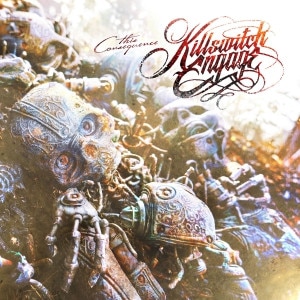
METALCORE
This Consequence
Killswitch Engage
Metal Blade
History shows that metalcore is far and away the most predictable of all the heavy metal subgenres. For more than two decades, Vans Warped Tour look-a-likes wearing the same skinny jeans and band T-shirts have tried to out-breakdown one another, resulting in 20 years of monotonous chugging on an open D-chord. What so much of metalcore has missed is the “metal” – and genre pioneer Killswitch Engage shoves that vital aspect of the sound to the forefront on this, its ninth album. As expected, frontman Jesse Leach takes the man of the match award here, mixing guttural death metal roars with his best hooks of the decade, most notably on opening salvo Abandon Us and side-B rager The Fall of Us. However, the Massachusetts band’s signature hammer-on-laden dual guitar attack – led by talisman Adam Dutkiewicz – also sounds sharper than ever here, with the likes of Collusion and closer Requiem seething with threatening energy. Although its chosen subgenre has stagnated, Killswitch Engage has come back off the bench to deliver a surprising, late-career classic that serves to remind its contemporaries that metalcore doesn’t have to be limited to half-time riffs tailor-made for TikTok.
Alasdair Belling
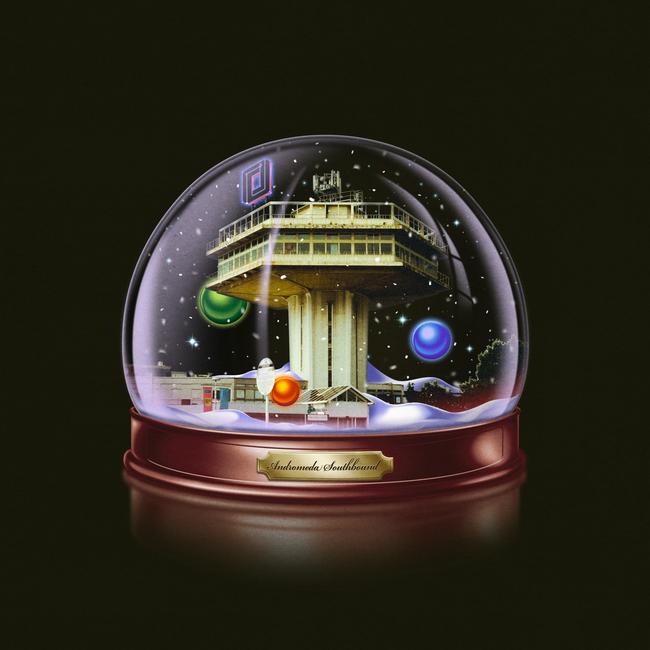
ALTERNATIVE
Service Station at the End of the Universe
Antony Szmierek
Mushroom Music
Manchester has been responsible for some of the world’s most innovative music acts, but few can hold a candle to the sheer eloquence of teacher-turned-pop poet Antony Szmierek. Not only is Szmierek a joy to listen to lyrically — coming off a bit like The Streets if Mike Skinner read Keats and mainly ingested UK funk and two-step — he’s also remarkably astute and funny. Spoken word has always found a natural home in Britain, from the punk barks of Idles and Sleaford Mods to the unfurling verse of Kae Tempest, but it’s hard work to also make it danceable. Szmierek has no such issues, unpretentiously mashing up incisive local commentary and poetic asides with beats that belong in big tents with thousands of people on cuts like The Great Pyramid of Stockport and Rafters. From the hilarious 80s funk of Yoga Teacher through to the life-affirming love stories on Big Lights and Angie’s Wedding, it’s an album that sounds like a film in the best possible way. Even if some of the Northern English references fly over your head, it’s hard not to be seduced by the charm and authenticity.
Jonathan Seidler
Album reviews for week of March 29 2025:
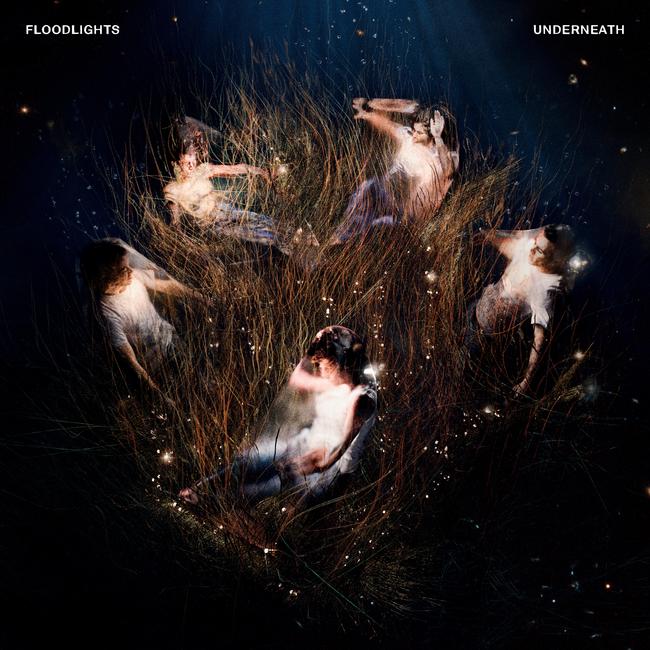
INDIE ROCK
Underneath
Floodlights
PIAS
“Empathy’s a dying trait,” sings Louis Parsons on Floodlights’ third album. Not so for this Melbourne five-piece, which fosters a deeply felt connection with people and places in their commanding songs. Following 2023’s A Painting of My Time, which tackled the complexity of Australia’s culture and landscape with strong echoes of Midnight Oil, Underneath proves equally accomplished. The band immediately broadens its scope with the addition of Sarah Hellyer, who adds not just grounding piano and dramatic trumpet but also joins guitarist Ashlee Kehoe for some foreboding swaths of vocal harmonies. Such elements are in full force on the opening Alive (I Want to Feel), which builds and builds as Parsons’ darkly striking vocals take full flight against those melodic devices and bassist Joe Draffen and drummer Archie Shannon’s churning rhythm section. In fewer than four minutes, Floodlights hits upon more windblown fervour than most bands muster across an entire album. It helps that the members’ sinewy interplay and Parsons’ resounding vocals have so much open space to inhabit. That’s always been a key feature of the band, but it’s especially palpable under the gaze of erstwhile Drones guitarist and now composer/producer Dan Luscombe. Observe the single Can You Feel It, which nails a spikiness exactly between post-punk and pub rock as Parsons powerfully repeats “I’m on the edge of nothing”.
And on The Light Won’t Shine Forever, Floodlights flexes a sense of wide-screen dynamism that will appeal to fans of The National and The War on Drugs. Opening with a spoken-word passage from Parsons, that track quickly picks up steam as the drums eventually come in and, later, a shadowy rumble of distortion. Its climax is one of the most thrilling turns in an album that has plenty. The quieter tunes communicate just as much meaning, though: inspired by the past and present treatment of the late Sinead O’Connor, Melancholy Cave laments the hypocrisy of praising those in death whom we demeaned in life. Featuring mostly just piano, that ballad sees Parsons’ voice quiver and ring out beautifully. And his delivery is passionate yet controlled on This Island, a slow-burn take-down of the myth of Australia’s breezy national identity: “It only took a step outside to shatter the illusion of a helping hand.” The closing 5AM is the longest track here at six-plus minutes, starting slow and diffuse before the vocal harmonies usher in another satisfying dynamic build at the four-minute mark. The combination of keyboards, harmonies, reverb and Parsons’ off-kilter vocal timing recalls NZ’s The Chills, but Floodlights takes those elements into darker, stormier stretches. Between the sheer space of the production and the lyrical subtleties, there’s a real sense of each listen offering more to explore. Yet for all the emotional weight, the songs remain stubbornly catchy. The single Buoyant may be a twinkling, backlit tune about ageing and generational detachment, but it again sets out on a skyward trajectory that takes us right alongside.
Doug Wallen
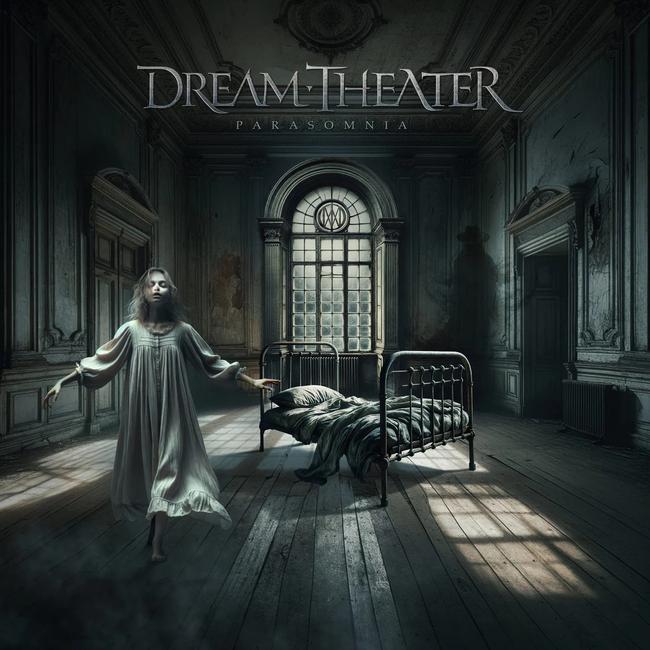
PROGRESSIVE METAL
Parasomnia
Dream Theater
Inside Out
In what is arguably a bigger prog-metal comeback than Opeth’s return of the death growl last year, Dream Theater reuniting with drummer and founding member Mike Portnoy has proven an essential cultural moment in metal. And it takes only one listen to this – the Boston-born band’s 16th LP – to hear how much soul and groove their founding member brings. Night Terror, Broken Man and closing 20-minute finale The Shadow Man Incident are by no means the most technical Dream Theater songs, but they scratch the ‘back-to-basics’ itch. Even the oft-maligned vocalist James LaBrie has his best outing in a decade here, particularly on the gothic power ballad Bend the Clock. That Bend the Clock is head and shoulders the best track here speaks to the main weakness; the only thing lacking from Parasomnia is the moments of 1970s and 80s pop sensibilities that made Dream Theater’s first slew of albums so memorable. This is now a metal band dabbling in prog – and although the results are generally a lot better when it’s the other way around, this outing is overall the best the quintet has produced in 15 years.
Alasdair Belling

ELECTRONIC/ALTERNATIVE
Mentalized
Skeleten
Astral People/2MR
Despite coming from the world of dance music, Sydney’s Russell Fitzgibbon crafts rather anxious and introspective work as Skeleten, applying supple rhythms and exquisite instrumental layers to dark lyrical strands. As the title suggests, this second album unpacks themes of mind control and other methods of influence. Yet Fitzgibbon pulls off such hypnotic mantras on singles like Love Enemy and Deep Scene that you could blissfully groove along to the dreamy repetition without noticing the lurking portent. There’s also a fun throwback factor, with opener These People porting over a baggy, trippy beat from the 1990s and other tracks flirting with vintage New Age and hip-hop. Live bass and guitar also help to ground these tracks. Meanwhile, Fitzgibbon’s singing is more delicate than ever on Raw, a searching ballad that just happens to have a snappy undercurrent – plus the requisite singalong refrain. Mentalized may be too subtle and sleepy for some to view it as proper dancefloor fodder, but these artfully constructed rabbit holes are inviting on a deeper level.
Doug Wallen
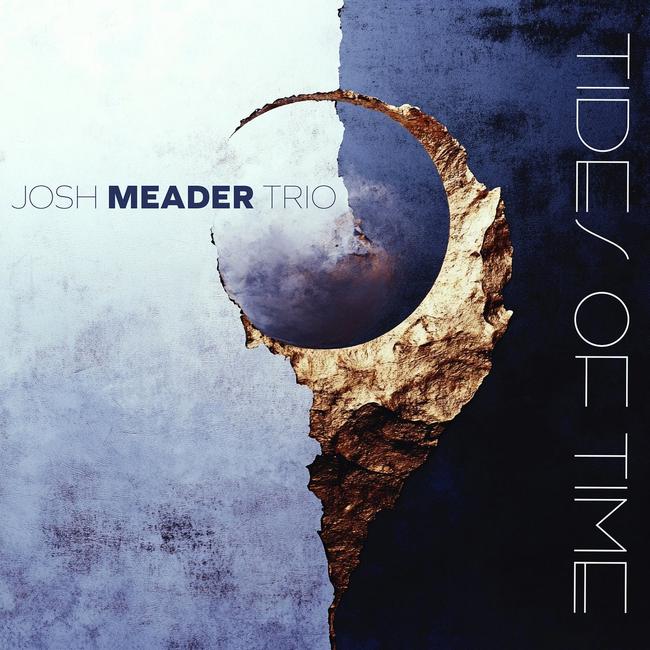
JAZZ
Tides of Time
Josh Meader Trio
Independent
Occasionally an album comes along where its brilliance is so astonishing and which takes the music to such a new level, that there’s little choice but to give it five stars. Tides of Time is one. It features Josh Meader (guitar), who has 120,000 followers on social media; Matthew Thomson (piano, keys, synth bass); and Alex Hirlian (drums). Both latter musicians are Australian National Jazz Award winners at Wangaratta, Hirlian in 2018 and Thomson in 2021. Twelve compositions are played here, many of them quite short, credited to all three musicians. To describe the music as jazz/rock fusion is inadequate as Tides of Time is vastly superior to comparable albums I’ve heard. It captures the majesty and melodic sensibility of the genre, but avoids relentlessness through ruminative and expressive sections that are incredibly beautiful. Thomson’s left-hand synth bass lines are very hip but even with his two hands on piano, the momentum in the music never falters. Then, when he returns to bass synth, the warmth in the music is palpably energising.
Eric Myers
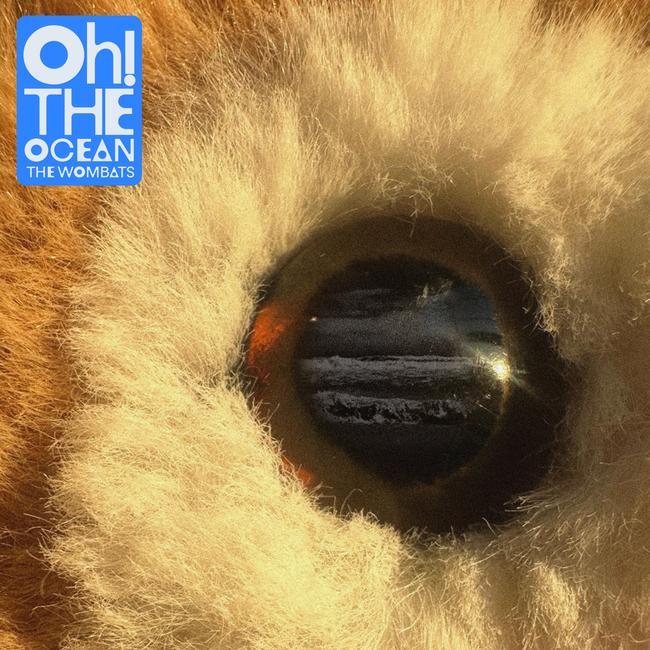
INDIE ROCK
Oh! The Ocean
The Wombats
AWAL Recordings
While many other bands who spearheaded the British indie rock revival in the mid-2000s have faded into obscurity, Liverpool’s The Wombats have had remarkable staying power. Part of that is due to its ferocious touring schedule: the band seems to be on a never-ending victory lap following the release of 2011’s This Modern Glitch. The trio has had a particular love affair with Australia; it once toured here three times in the same year. We’re a long way from the dizzying, punchy heights of hits like Tokyo (Vampires & Wolves) or Greek Tragedy, but this band is still carving out dependable, and very popular, indie rock: 2022’s Fix Yourself Not The World was its first UK No. 1. Its sixth album is, among many things, a contemplation on the glitz and hollowness of Los Angeles, as frontman Matthew Murphy recently moved there. Some lyrics are ham-fisted — “Now we’ve got TikTok models with slippery morals”, from Swerve 101 — but there are some solid, classic moments here, like the reflective, propulsive My Head is Not My Friend or I Love America and She Hates Me.
Jules LeFevre




To join the conversation, please log in. Don't have an account? Register
Join the conversation, you are commenting as Logout